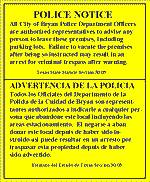Word Origin mid 16th century: from medieval Latin, literally ‘he has stated on oath’, from affidare. What is an affidavit statement? One use of affidavits is to allow evidence to be gathered from witnesses or participants that may not be available to testify in person before the court. A statement is a witness statement.

It is a statement of fact (not opinion), signed with a statement of truth. It is not admissible in evidence without a statement of truth. The term ‘affidavit’ comes from medieval Latin and means “he has stated on oath”.
The benefit of presenting evidence in this way is that each party in a court case is aware of what the other’s witnesses will say at the trial. The document is signed both by the person making the statement, called an affiant, and by a person who is legally authorized to administer an oath, such as a notary public or certain court and government officers. An affidavit is also a statement of fact, but to which is added an.

The person making the oath signs the affidavit form in front of a witness, most commonly a notary public, who verifies the identity of the person signing (the “signatory”). It is an oath that what the individual is saying is the truth. If you need an affidavit for a court case or other legal reasons, preparing one is easy if you know the guidelines. If you make an affidavit, you are said to offer it, even though a court might compel you to swear one. Who can offer an affidavit?
The form must be sworn on oath or affirmed. An affirmation is a non-religious statement that has the same legal effect as an oath sworn on a religious text. The affidavit can be sworn or affirmed.
In a nutshell, an affidavit is a sworn statement that is in writing. They are common in family law cases and bankruptcy cases. Chances are, you’ve likely already signed an affidavit at some point in your life.
It is a document that sets out the evidence that the witness wants to give. Depending on where you’re locate you might need to have an authorized affidavit taker witness the creation of your affidavit in person. In order to be admissible, affidavits must be notarized by a notary public.
There are two types of judicial notarizations: an acknowledgement and a jurat. Someone may make one in connection with a court case, or it may be an important supporting document in something like a mortgage application. This file may not be suitable for users of assistive technology. Affidavit Affidavit.
Prior to giving testimony, a witness in a court trial must swear that what they are about to say is true and correct under penalty of perjury. Often, courts use this type of document as evidence in legal proceedings. Signing this document under oath means. The individual who writes the affidavit is swearing, upon signing the statement, that the information within is the truth. An official affidavi.
An affiant is a person who signs the affidavit , however, a notary is a person in front of whom the affidavit must be signed by the affiant. Furthermore, a notary must also verify the facts of the affidavit by signing it and then sealing it. In fact, he’s a sort of witness for an affidavit as well as the affiant.
It is the main way you present evidence (the facts of the case) to a court. However, if there are other family members involve which is the case oftentimes, creating an affidavit of heirship will help you establish your case on why you should be the successor of the decedent.
No comments:
Post a Comment
Note: only a member of this blog may post a comment.